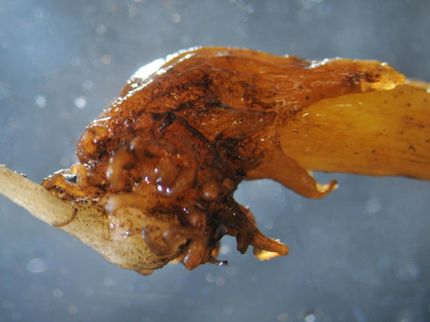Center to bring agricultural innovations to China
Advertisement
A new center may help make such Cornell agricultural advances as transgenic drought- and salt-tolerant rice available in China. A Memorandum of Understanding (MOU) between Cornell and the Department of Science and education of China's Ministry of agriculture facilitated the creation of the Sino-U.S. Ray Wu Agricultural Technology Innovation Center at Cornell.
"The MOU reflects the fact that we really want to work together," said Alan Paau, vice provost for technology transfer and economic development. "We want to be doing things that not only benefit our researchers' understanding of the real problems in China, but we also want to help China benefit through our domain expertise."
Similarly, the Chinese may have new technologies and innovations that may be of value here and may use Cornell's expertise to help advance them. "Innovations will come from both sides," said Paau.
In early December, a delegation from China's Ministry of Agriculture will visit Ithaca to negotiate the center's operating and funding details. Most of the funding for the center is expected to come from the Chinese Ministry of Agriculture, with Cornell providing support and coordination for projects.
An initial project may include sending animal vaccines to China. The vaccines, developed at Cornell's College of Veterinary Medicine, have already worked well in the United States and Europe. Cornell may also help Chinese researchers engineer drought- or salt-tolerant rice that were developed by Wu, the late Cornell professor of molecular biology and genetics, who was widely recognized as a father of plant genetic engineering. The new center is named after Wu to honor his career and efforts to help China improve life sciences education standards, among other things.
Most read news
Topics
Organizations
Other news from the department science

Get the life science industry in your inbox
By submitting this form you agree that LUMITOS AG will send you the newsletter(s) selected above by email. Your data will not be passed on to third parties. Your data will be stored and processed in accordance with our data protection regulations. LUMITOS may contact you by email for the purpose of advertising or market and opinion surveys. You can revoke your consent at any time without giving reasons to LUMITOS AG, Ernst-Augustin-Str. 2, 12489 Berlin, Germany or by e-mail at revoke@lumitos.com with effect for the future. In addition, each email contains a link to unsubscribe from the corresponding newsletter.
























































